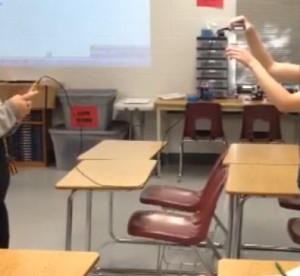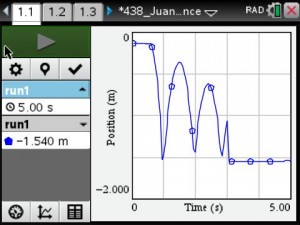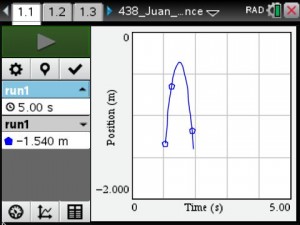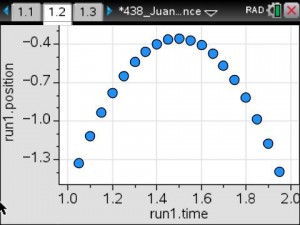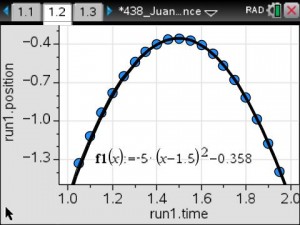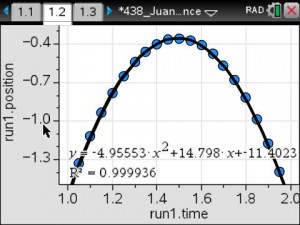On Friday, as part of my Innovative Teaching Grant from the Pearland ISD Education Foundation, my students completed their second data collection lab.
Objectives
- Record height versus time data for a bouncing ball.
- Model a single bounce using both the vertex and standard forms of a parabola.
Procedure
That’s the Way the Ball Bounces Instructions
Since my subject partner’s classes were not participating in the data collection, we had ten CBR2 to share among all students in the class. With several students out for a pep rally, students were able to work with a partner, and each student collected his/her own data. Students dropped a racquetball below the CBR2 motion detector. The CBR2 collected data for position vs time for 5 seconds.
Analysis
An example of one student’s data collection.
Students chose one bounce to model. They selected the bounce and struck the outside data.
Then they sent the data to a Data & Statistic page to analyze the bounce.
They traced along the scatterplot to find the coordinates of the vertex. They used the coordinates of the vertex to plot a function in vertex form. Students had to change the value of a until they found the best fit for their data.
Then they expanded the vertex form to get the equation in standard form. This student’s equation was ![]() .
.
Next they had the calculator find the quadratic regression for their bounce.
Students compared the expanded vertex form equation to the standard form from the regression. They found that the vertex form equation they had plotted was very similar to the standard form equation from the regression.
Students answered the questions on the record sheet.
That’s the Way the Ball Bounces Record Sheet
Conclusion
More than one student commented, “That was fun.”
Some of the juniors mentioned that they wished the had the TI-Nspire in Physics class. They had recently done an experiment using the TI-84s with the motion detector to see how long it takes objects of differing masses to hit the ground. They commented that it was easier to use the motion detector with the TI-Nspire.
